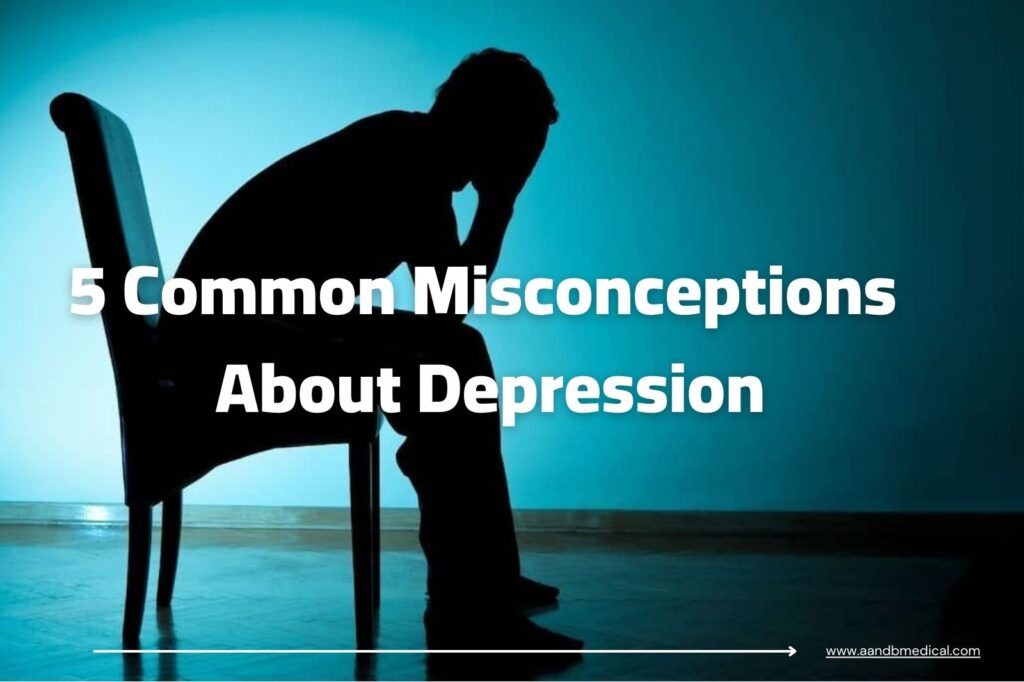
Depression is a widely misunderstood condition, often surrounded by myths that prevent people from seeking the help they need. Let’s break down 5 of the most common misconceptions about depression and uncover the truth behind them.
Myth 1: Only Weak People Get Depressed
One of the most harmful misconceptions about depression is the belief that it only affects weak or fragile individuals. This myth perpetuates stigma and prevents many people from seeking help, fearing they will be judged or seen as lacking resilience.
The Truth
Depression is not a reflection of character, strength, or willpower. It is a complex mental health condition influenced by biological, psychological, and environmental factors. Brain chemistry, genetics, trauma, and chronic stress can all contribute to depression, and none of these factors have anything to do with personal weakness.
Myth 2: Depression Is Just Sadness
One of the most widespread misconceptions about depression is that it’s simply another word for sadness. While sadness is a common human emotion, depression is a complex mental health disorder that goes far beyond feeling down for a short period.
The Truth
Depression is not just an emotional response; it’s a serious condition that affects how someone feels, thinks, and functions daily. Unlike sadness, which typically has a clear cause and resolves over time, depression is persistent and can occur without an identifiable reason. It can also involve a range of symptoms that extend beyond mood.
Myth 3: Depression Isn’t a Real Illness
One of the most damaging myths about depression is the belief that it isn’t a legitimate medical condition, but merely a phase, a personality flaw, or an overreaction. This misconception invalidates the experiences of those suffering from depression and contributes to the stigma surrounding mental health issues.
The Truth
Depression is a recognized mental health disorder classified by medical organizations such as the World Health Organization (WHO) and the American Psychiatric Association (APA). It is included in the Diagnostic and Statistical Manual of Mental Disorders (DSM-5) and is considered as real and significant as physical illnesses like diabetes or heart disease.
Myth 4: Depression Is a Choice
One of the most pervasive and harmful myths about depression is the idea that it is a choice—that people can simply “snap out of it” if they try hard enough or adopt a more positive outlook. This misconception dismisses the complexity of depression as a serious mental health condition and adds to the stigma faced by those affected.
The Truth
Depression is not a choice, but a medical condition caused by a combination of biological, psychological, and environmental factors. It affects brain chemistry, hormones, and even physical health. Just as no one chooses to develop conditions like diabetes or asthma, no one chooses to experience depression..
Myth 5: Talking About Depression Makes it Worse
That’s a common concern, and it can feel daunting to address. Sometimes, discussing depression might temporarily amplify feelings because it brings those hidden or buried emotions to the surface. It’s like pressing a bruise—it hurts, but it’s part of the healing process. Talking about it can ultimately help by providing relief, understanding, and new perspectives.
It’s important to approach these conversations with care and ideally, in a supportive environment. Professional help from therapists or counselors can be invaluable. They have the tools to guide those discussions in a way that’s safe and constructive.
The Truth
Remember, you don’t have to face it alone. If you ever feel overwhelmed, reaching out to someone you trust can make a huge difference.


Hi, this is a comment.
To get started with moderating, editing, and deleting comments, please visit the Comments screen in the dashboard.
Commenter avatars come from Gravatar.